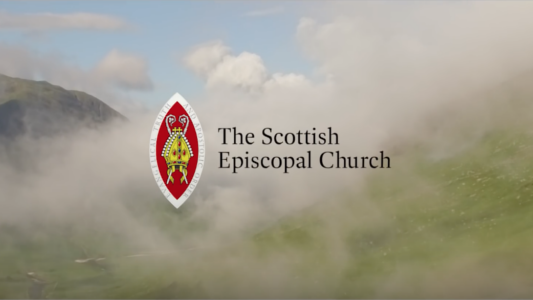1 Summary of main responsibilities
The following comprises a list of the main responsibilities which are likely to be expected of the Vestry Treasurer:
- The preparation of budgets and their presentation to the Vestry for approval.
- The collection and banking of all monies received.
- The prompt payment of all accounts, Quota etc., due by the Charge, as within the approved budget.
- The submission to the Vestry for its approval any other payments outwith the budget.
- The keeping of financial records for all receipts and payments including the retention of all appropriate vouchers.
- The administration, on behalf of the Vestry, of the Charge investment assets, including any liaison with the stockbroker or financial adviser.
- The presentation to the Vestry of periodic income and expenditure summaries – in comparison with budgets and previous years’ results; and of any investment valuations.
- The preparation of the Annual Accounts in accordance with the current charity accounting regulations for submission to the Vestry and Independent Examiner/Auditor. (see section 4 below)
- The production of all records, vouchers, certificates, etc., required for independent examination/audit purposes.
- The presentation of the financial information including the Annual Accounts to theAGM.
- The submission of the accounts and schedules to the appropriate person for completion of the Annual Return / Supplementary Monitoring Return to OSCR and to the Diocesan office.
- The retention of copies of the previous accounts and supporting papers.
- The provision of copies of the annual accounts and report thereon to any person who requests a copy.
- Recovery of tax on the gift aid donations and liaison with the Gifts Secretary over relevant taxation matters.
- Preparation of grant applications for consideration by the Vestry.
- Submission of tax returns to the HM Revenue & Customs, if required
- Advising the vestry members on the required internal control procedures to manage risks. Guidance on this issue is available from The Charity Commission for England and Wales website.
2 Taking Office as Vestry Treasurer
On appointment:
- Unless there is agreement to the contrary, the Vestry Treasurer assumes office from the date of appointment. It may be an advantage for the Treasurer to assume office on an agreed date part way through the Charge’s financial year, the previous year’s accounts being prepared by the outgoing treasurer who will also have had them examined/audited.
- The handover of money, books and records should take place as soon as possible after a new Treasurer has been appointed. (Details of these appear under Section 3). At this point, bank balances, cash in hand and bank reconciliation statements should be agreed between the outgoing and incoming office holders, and signed by both parties.
- When a new Treasurer assumes office, the Secretary of the Vestry should have prepared a fresh mandate for the Bank, showing the new authorised signatures. Each banking document should require two signatures, but the Vestry may also appoint alternative signatories.
- Changes of Vestry Treasurer must be notified to the Diocesan Office by the Vestry Secretary, and copied to the General Synod Office.
3 Books and Records
The Vestry Treasurer has responsibility for maintaining a number of books and records. These may take a number of forms including both manual and computerised records. The Vestry Treasurer should ensure that they are adequately stored and, in the case of computerised records, adequate back-up procedures are in place and appropriate hard-copy records also retained. (Password details etc should also be recorded to be made available to other Vestry members should that be required.). The books and records to be maintained include:
- Copy of the Minute of Appointment as Vestry Treasurer and details of authorised signatories for cheques.
- For all bank accounts – cheque books, paying-in books, bank statements, cash floats, unbanked cash or cheques received and all relevant reconciliation statements
Note: Cheque Signatories
It is strongly recommended that the Vestry operating rules require cheques to be signed by two people, usually the Treasurer and one other Vestry member.
- A cash book covering all bank and cash transactions for the current financial year and the preceding five years analysed by category.
- Copies of the latest six years’ accounts and supporting papers. The accounts may be required by HM Revenue & Customs. (It is advisable, for historical purposes, to retain indefinitely, one copy of all approved set of accounts).
- Details of all other Funds, and the fund holder, if they are not in the main account.
- Details of all endowments, investments or other income producing items. Information should include the location of the title documents, and the name in which they are held. This includes units in the Scottish Episcopal Church Unit Trust Pool.
- It is most important that the rules regarding the use of the individual restricted and designated funds held by the Charge are known, documented and applied.
Note: Where possible, it is advisable that all securities and other documents held be under the office bearer title rather than in individual names. Some constitutions require documents to be held in the name of specific trustees.
- Details of car insurance and the registration document, where appropriate.
- A copy of any contract of employment which exist for Charge employees. (Contracts should include all benefits, in cash or in kind, expenses and other allowances). This should include clergy, who may not normally be technically employed.
- A copy of any remuneration agreements in place for Charity Trustees. (Further guidance on remuneration agreements can be found in the Charity and Trustee Investment (Scotland) Act 2005: Guidance for Vestries note on the SEC website.)
If not held by the Property Convener:
- A summary of all Church property, including details of ownership, restriction of use and disposal, the names of Trustees, location and custodians of Title Deeds, cost or book value, and current valuation if known.
- Details, and the date of their last revision, of all insurance policies held on behalf of the congregation in respect of Church, buildings, hall, rectory and any other Church property.
4 Preparation of Annual Accounts
Charity Trustees must prepare accounts that comply with the Charities and Trustee Investment (Scotland) Act 2005 and the Charity Accounts (Scotland) Regulations 2006 (as amended) and subject them to the appropriate external scrutiny (Independent Examination / Audit). Whilst the Vestry Treasurer will have responsibility for the preparation of the financial information contained in the Annual Accounts it is the Vestry’s responsibility to consider and approve the full Annual Report. (The Vestry should also agree who is responsible for writing the Trustees’ Annual Report on its behalf.)
There is a section of the OSCR website devoted to charity accounting (here).
OSCR’s specific guidance on the amended Accounts Regulations can be found here.
(The Accounts Regulations were slightly amended in 2010. The main change is that the income threshold for preparing receipts and payments accounts was increased from £100,000 – to £250,000. The level of assets which a charity can hold before an audit is required was also increased from £2.8 million to £3.26 million.)
The following specific guidance is available from the SEC website:
- Receipts and Payments accounts Guidance Notes
- Receipts and Payments accounts checklists
- Simple form of receipts and payments accounts
- Case study and detailed receipts and payments accounts
- Detailed receipts and payments accounts
- Fully accrued / SORP compliant accounts – Guidance Notes
- Sample accrued accounts
Vestries are responsible for submitting signed annual accounts (and a completed Annual Return / Supplementary Monitoring return) to OSCR within nine months of their financial year end. Further guidance on the completion of the Annual Return and Supplementary Monitoring Return is available from the SEC website here. The Accounts should be submitted to the Diocesan Office for review.
5 Independent Examination / Audit
All accounts should be subject to external scrutiny (Independent Examination / Audit). The Vestry Treasurer will have a major role in liaising with the independent examiner / auditor and in ensuring that the work is completed and any issues reported to the Vestry.
A separate guidance note is available from the SEC website (here).
OSCR’s Guidance for Charities and Independent Examiners can be downloaded from its website (here)
The Association of Charity Independent Examiners has issued a Scottish version of their Independent Examination File. Please contact us should you wish more information regarding the ACIE checklist.
6 Annual Budgets and Monthly Reporting
Monthly reporting of results is highly desirable to enable the Vestry to obtain a picture of the year to date. This report should be considered each month by the Vestry to enable the members of the Vestry to appreciate not only the performance to date, but also to gain some idea of any potential issues remaining for the rest of the year.
However it is at best historical and, to gain true value, it is preferable to present results against a budget. Such a budget can be very simple and prepared on an annual basis, quarterly or monthly figures merely being the total divided by four or twelve respectively. Quarterly / monthly estimates could preferably be produced on the basis of the spend profile for the previous year or on projected actual spend to provide meaningful comparisons and forecasts. To achieve this, it is necessary for the Treasurer to prepare a simple draft for the next year one or two months before the end of the current financial year. This can be reviewed and, if approved, adopted in the interim by the Vestry on behalf of the congregation. Final approval is given at the Annual General Meeting, at which point the members in the Charge have the opportunity to be aware of the challenge for the year and can concentrate on how to meet it.
To create a budget in its simplest form, the actual figures for the current year can be used as a base. They are modified as considered necessary for inflation and other known increases such as stipend, NI and pension contribution. Income from any investments can be forecast, if necessary with the help of the stockbroker/fund manager who manages the funds.
If it is practical, a budget could be prepared for at least two years ahead, being modified as necessary each year. Such a budget will help to give an indication of trends. Significant factors, particularly in small or rural congregations, may concern population age and movement, opportunities for mission and results of any planned stewardship campaigns.
7 Taxation
As a general rule, charities are exempt from most assessed taxes (such as corporation tax, income tax, capital gains tax and stamp duty) but are required to pay some other forms of tax – most notably VAT on goods and services purchased for the charity. (VAT on building works is a particularly complex area and appropriate professional advice should be obtained prior to any significant works being undertaken.) Charitable tax exemptions are subject to the condition that income is applied to charitable purposes.
Further information and advice on the range of tax issues relating to charities can be found on the HMRC website charity section.
Corporation Tax Returns
There is no need to submit Annual Accounts or a Corporation Tax return to HMRC each year. (There is however a requirement to advise HMRC if any income or capital gains are received that are not exempt from tax or when any income is used for any non-charitable purposes.)
Each year HMRC issue a sample of charities with Corporation Tax returns. Should such a Return be received you must complete it (even if you’re claiming exemption from tax on all of your income and gains) and ensure that it is submitted to HMRC within the relevant time limit.
May 2012
The General Synod of the Scottish Episcopal Church does not accept responsibility for any loss or liability which may arise from reliance on information or expressions of opinion contained in this document.
General Synod of the Scottish Episcopal Church
Scottish Charity No SC015962







